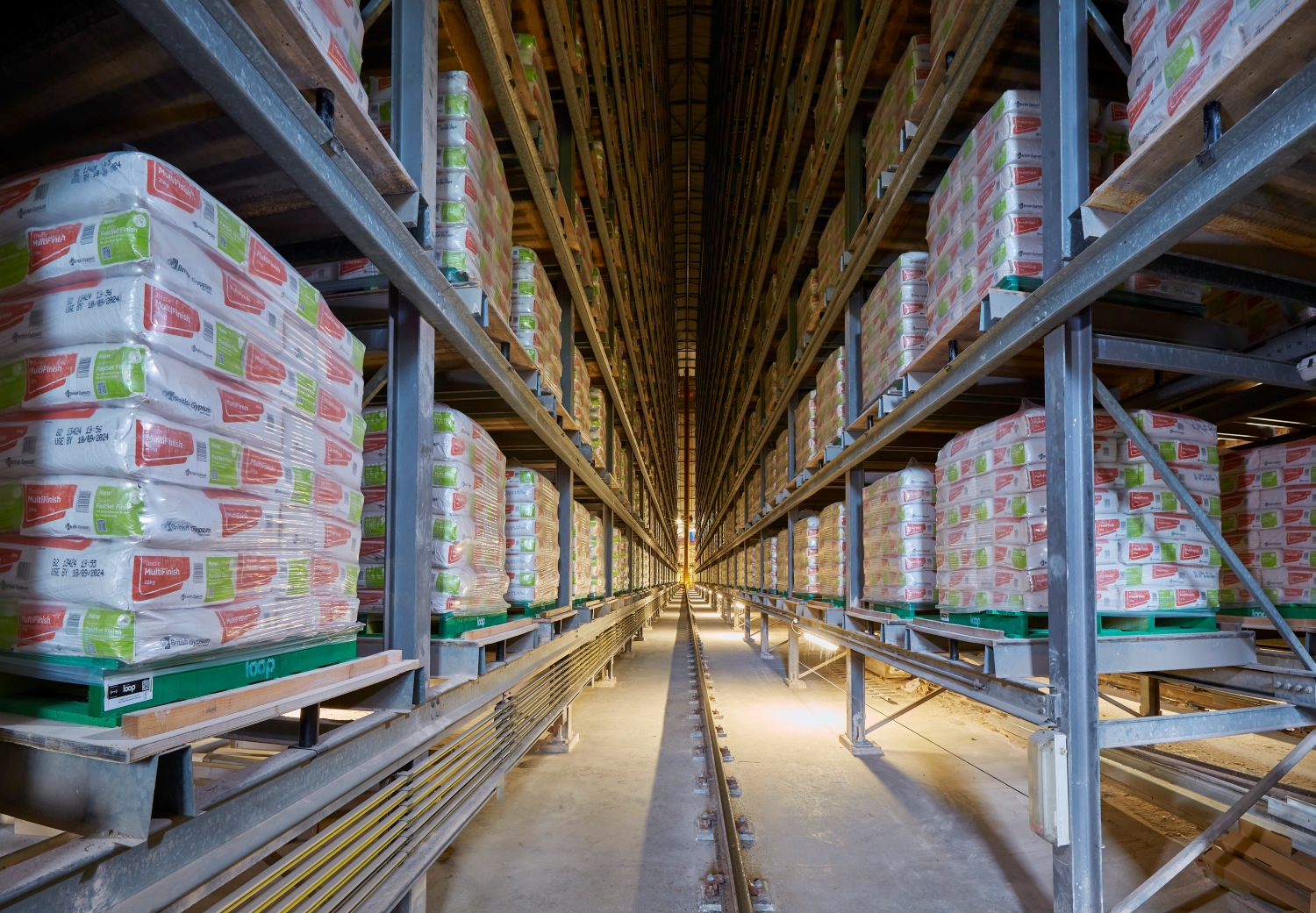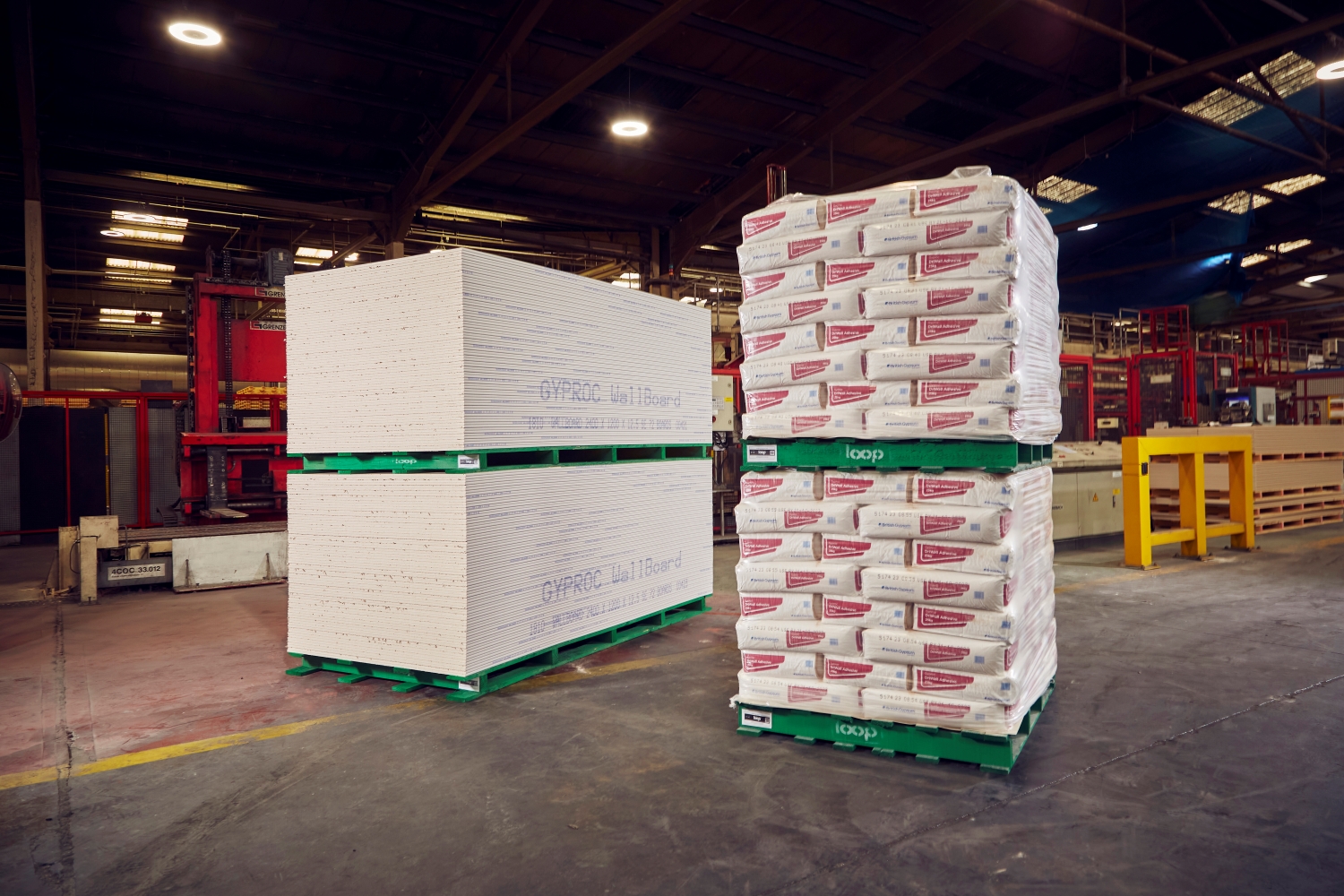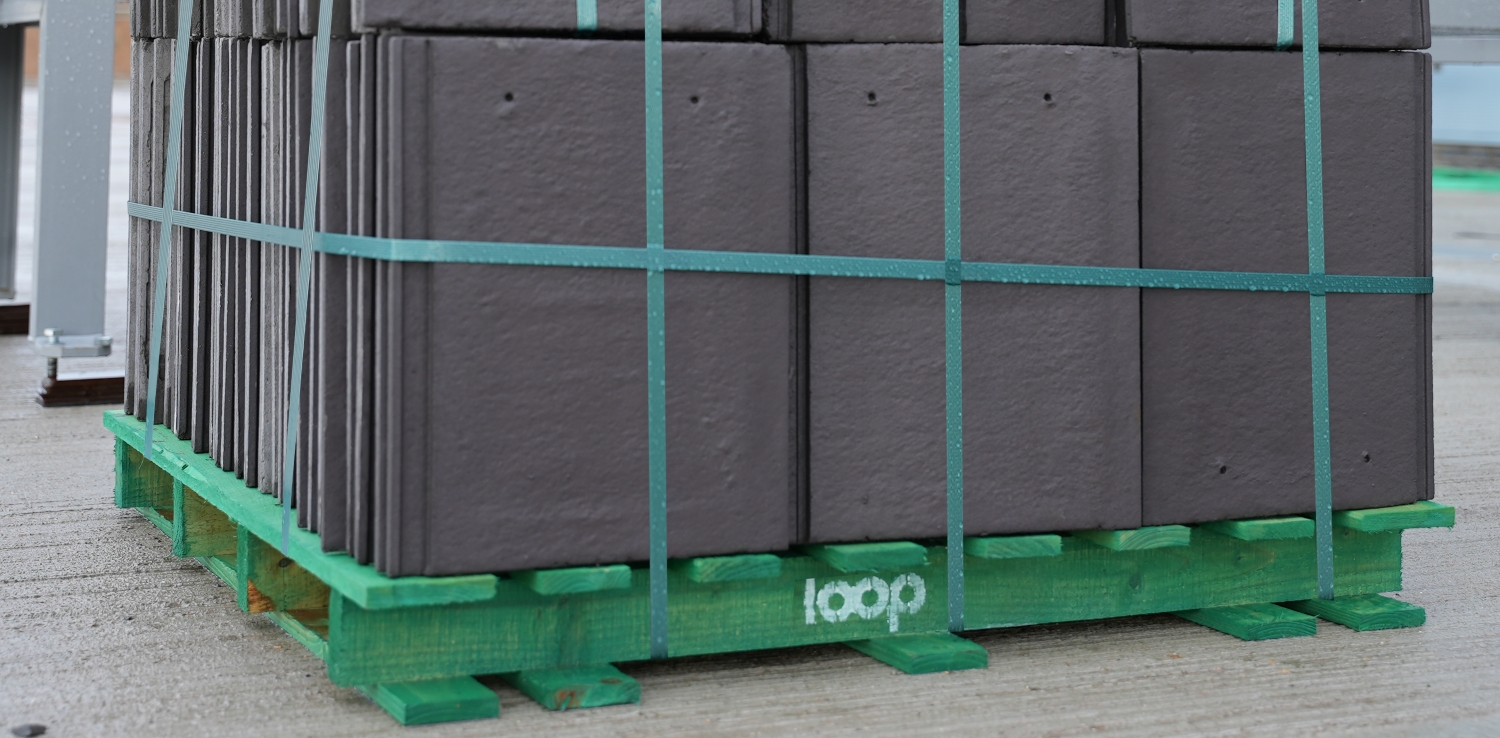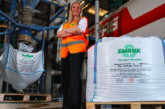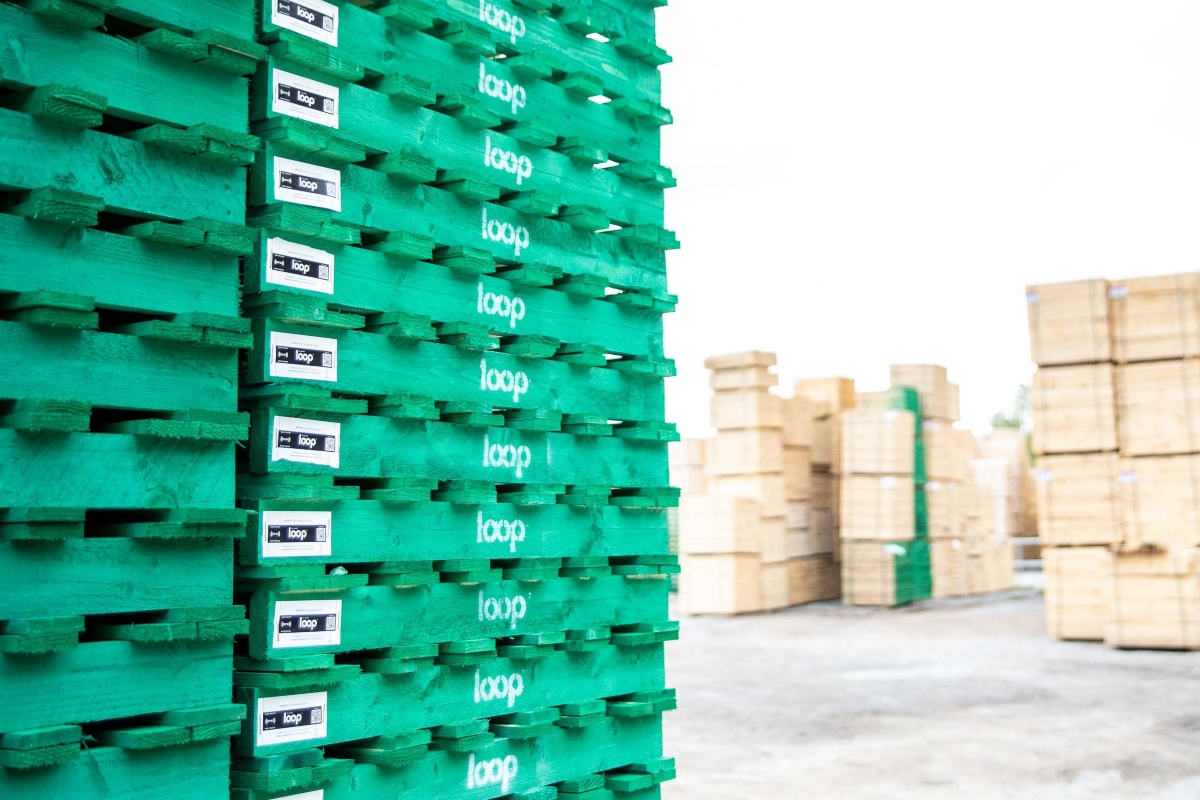
On housebuilding sites across the UK, a change is occurring. Look closely, and you’ll notice an increasing number of pallets turning a distinctive shade of green. Stamped with a white LOOP logo, and featuring a tag with a QR code, the pallets are the start of a movement that’s building real momentum across the construction industry. PHPD speaks to Nathan Wride, Director of Partnerships & Innovation at The Pallet LOOP to find out more.
“Pallets play a crucial role on housebuilding sites up and down the country, providing a sturdy and efficient way to transport, store, and organise materials. But there’s a fundamental problem with the way the construction sector has been using pallets. The majority are cost engineered for one trip through the supply chain on the assumption that they’ll get skipped or scrapped once free of materials. That’s the reason you see sad-looking, broken pallets on sites, which will ultimately end up in wood skips. At The Pallet LOOP we’ve found a better way.”
“We’ve designed a range of pallets that can be used again and again. In parallel, we’ve set up a pallet collection service that will pick up pallets (green and the old style white) from housebuilding sites nationwide. We’ll even pay companies for giving us the green ones back – with a PayBack of up to £4 available for every green pallet recovered for reuse. It’s a simple model, that uses circular economics to benefit every part of the supply chain – reducing waste, cutting costs, and freeing up vast volumes of timber for longer-term carbon storage applications.”
The Pallet LOOP has been encouraging the construction industry to move to reusable pallets for a couple of years – speaking to every part of the supply chain to find a reuse model that was equitable for all parties. Every year the industry uses 20 million new pallets to move materials. Historically around 90% have ended up getting skipped or scrapped after spending just two or three months in the supply chain. In April last year, the team’s tenacity and perseverance paid off when they signed a major deal with British Gypsum – the largest user of pallets in the UK construction sector. Since then, Isover, Superglass and wienerberger have all followed suit.
Continuing, Nathan said: “The 20 million pallets figure is a pretty damning statistic on a number of levels. It’s shocking given how long it takes to grow the timber needed to make that volume of pallets and how many trees are required (around 6000 acres of forestry every year). It’s unsustainable from a waste perspective. With many housebuilders now adopting zero waste targets, pallets pose a real problem. Then there is the cost of disposing of pallets to housebuilders. We’ve calculated that putting a pallet in a wood skip, costs around £8. In our conversations with the sector, we kept coming back to these numbers and everyone agreed something had to change.”
Statistics provided by The Pallet LOOP show that the system is gathering pace. By the end of 2024, The Pallet LOOP estimates it had:
- Saved the sector around 250 tonnes of carbon
- Diverted up to 2,500 tonnes of wood waste from skips
- Saved around 5,000 m3 of timber
- Saved companies returning pallets almost £1 million in skip costs.
Through the financial incentive it offers, The Pallet LOOP had – by year end – also paid back almost £180k to companies returning green pallets.
Pallet returns are continuing to grow week on week with builders’ merchants, principal contractors and housebuilding companies nationwide choosing to reuse pallets in ever-increasing numbers. In October and November 2024, The Pallet LOOP achieved a pallet recovery rate of around 30% on its standard construction pallet – exceeding standard construction sector recovery rates (typically 10%).
Nathan said: “When we look at our pallet collections data – enabled by the tags on our pallets – it’s clear that the merchant sector is really embracing The Pallet LOOP. Now we need housebuilders to do the same. Some have started, but there’s a huge opportunity here from both an environmental and a financial perspective – with the LOOP PayBack rewarding best practice and acknowledging the role housebuilders will play in making this circular pallet solution a success.”
The Pallet LOOP has estimated that for every 100,000 LOOP pallets in circulation, there will be a financial upside for the construction sector of up to £1,200,000 available (£800,000 saving in pallet waste disposal costs (based on not putting pallets in a skip) + a total LOOP Payback of up to £400,000). In addition, there will be an estimated saving of 2000 m3 of timber resource. That’s the equivalent of 7000 trees – generating a saving of 130 tonnes CO2e.
One thing is clear. The world of pallets seems to be changing – for the better.
To register for The Pallet LOOP click here.

